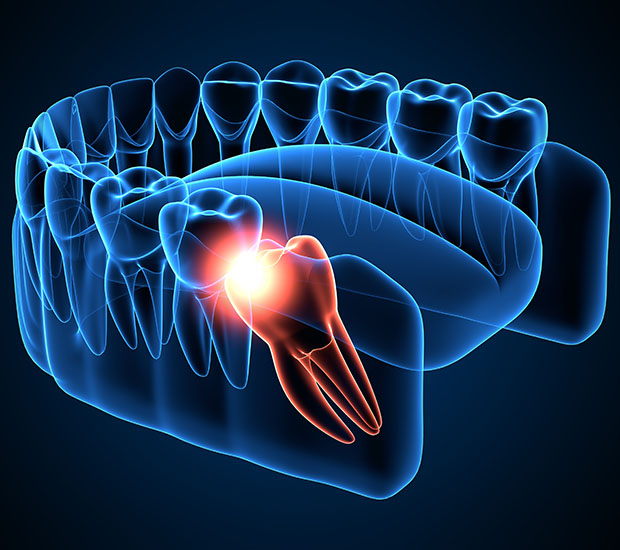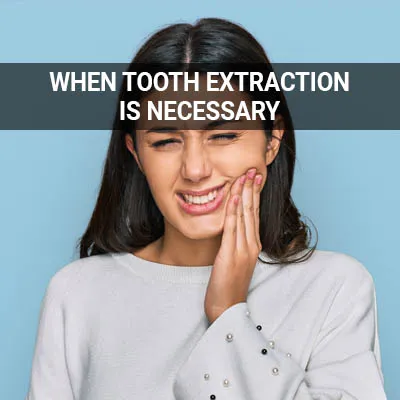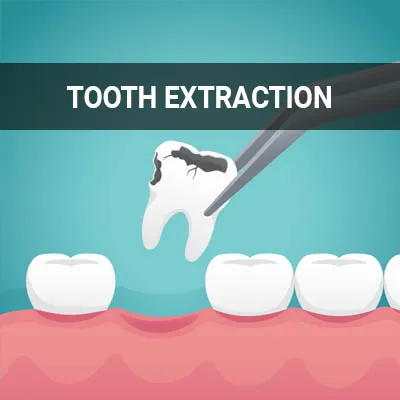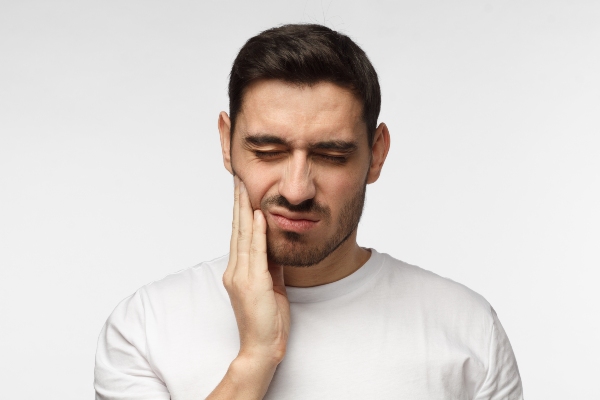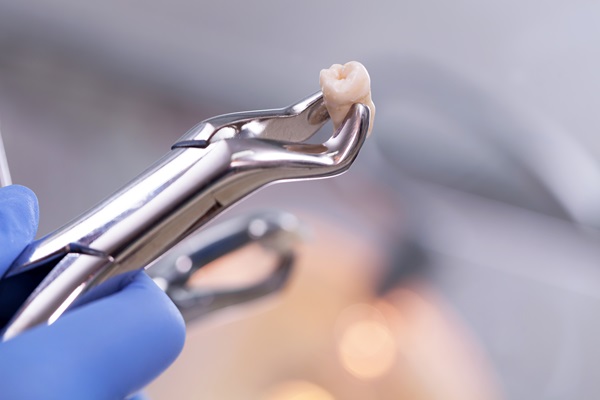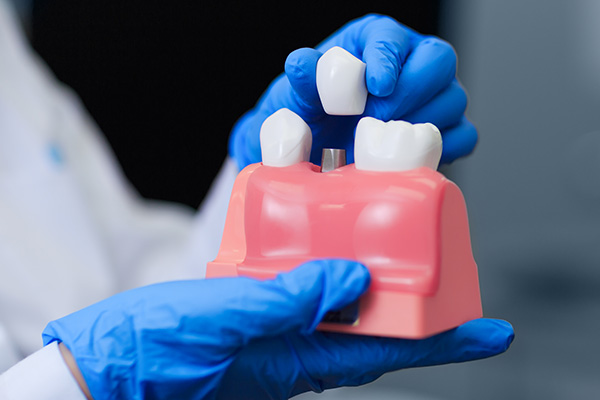Wisdom Teeth Extraction Rosenberg, TX
Wisdom teeth extractions are a fairly common procedure that helps alleviate pain or pressure associated with improperly developing wisdom teeth. Extracting the wisdom teeth becomes necessary when the surrounding teeth, gums, and bone are at risk because of the way the wisdom teeth have erupted or are erupting. Early detection of their development can greatly reduce healing time and improve a patient's overall oral cavity.
Wisdom teeth extractions are available at KRB Dentistry in Rosenberg and the surrounding area. We can help determine whether an extraction is recommended or necessary. We can also discuss other alternative treatments and help you decide the best route for you. Call us today at (832) 361-3929 to schedule an appointment or learn more about our services.
Understanding Wisdom Teeth Extraction
"Wisdom teeth" is the colloquial term for the third set of molars that sit in the back of the mouth. They are called such because they come between the more "mature" ages of 17 and 21. The emergence of wisdom teeth can be uncomfortable, even if they are emerging correctly. Wisdom teeth do not always necessitate extraction. On the contrary, properly aligned wisdom teeth may assist in chewing.
However, if there is no adequate space for the wisdom teeth to emerge or if the teeth are coming through in the wrong position, they may become impacted (or trapped in the jaw or under the gums). This may cause cysts, damage to neighboring teeth, gum disease, infection, pain, tooth, decay, and tumors. A dentist needs to monitor the patient's wisdom teeth and determine the best course of action.
“”Wisdom teeth” is the colloquial term for the third set of molars that sit in the back of the mouth.”
Potential Risks
Although wisdom teeth extraction is a common and safe procedure, there are a variety of potential risks involved with extracting any tooth. However, these complications are often associated with patients who are at high-risk because of other conditions. We conduct a thorough examination and discussion of each patient's medical and dental history to determine whether they would be a good candidate for extraction.
Some of the risks associated with wisdom tooth extraction include:
- Painful dry socket, or exposure of bone when the post-surgical blood clot is lost from the site of the surgical wound
- Infection in the socket from bacteria or trapped food particles
- Damage to nearby teeth, nerves, jawbone, or sinuses
“Although wisdom teeth extraction is common and safe, there are a variety of potential risks involved with extracting any tooth.”
Preparing for an Extraction
Since an extraction is considered a surgery, it is common for patients to be nervous before their procedure. However, wisdom teeth extractions are quite common, with dentists performing this type of procedure many times a week. It is a good idea for patients to understand what their treatment will entail and properly prepare for it ahead of time.
During the initial consultation, we ask that patients be as open as possible in relaying their symptoms and health history. This allows us to determine whether extraction is safe and to take any necessary precautions during the procedure. Avoid smoking or drinking alcoholic or acidic beverages for at least eight hours before the procedure. Clean the mouth thoroughly and drink only water an hour or two before the procedure. We will administer a local or general anesthetic prior to the procedure, keeping the patient calm and relaxed.
“Avoid smoking or drinking alcoholic or acidic beverages for at least eight hours before the procedure.”
Check out what others are saying about our dental services on Yelp: Wisdom Teeth Extraction in Rosenberg, TX
Process of an Extraction
The process of wisdom tooth extraction differs from patient to patient, depending largely on their age and the way the teeth have erupted in the mouth. There are two types of extractions: simple and surgical. A simple extraction is a minor procedure for patients with visible and easily accessible wisdom teeth and only requires local anesthesia. A surgical extraction is more complicated as the wisdom teeth lie beneath the gums and require small incisions to reach. We may administer a general anesthetic or IV to keep patients asleep during the procedure.
During a simple extraction, we use a special tool called an elevator to loosen the tooth out of its socket. We will place gauze behind the extraction site and towards the throat to prevent accidental swallowing of the extracted tooth. During a surgical extraction, we start by making small incisions to expose the tooth before removing the tooth piece by piece. In other cases, we may use the elevator to remove it as a whole, depending on its placement in the gums.
“During a simple extraction, we use a special tool called an elevator to loosen the tooth out of its socket.”
Questions Answered on This Page
Q. What are the potential risks of wisdom teeth extraction?
Q. How can I prepare for an extraction?
Q. What is the process of an extraction?
Q. What should I do after a wisdom tooth extraction?
People Also Ask
Q. How can someone find out what procedures their dental insurance covers?
Q. What is the difference between a dental checkup and a dental cleaning?
Post-Treatment Care
In most cases, patients recover from extractions within four days. However, it may take up to a week. Additionally, the empty socket will likely remain for a month or two before it completely heals and closes up. It is crucial to follow post-treatment instructions for faster healing and to maintain good oral health. We recommend resting the first day after the procedure, and avoiding strenuous activity, the use of straws, smoking, and spitting for the first few days. Patients can use an ice pack to reduce swelling and should replace the gauze every few hours to keep the extraction site clean.
If you are experiencing pain, swelling, or inflammation that lasts more than a week, call us immediately to schedule a follow-up appointment. There is a risk of infection if the site is not properly maintained or healing incorrectly. We can take a look at the area and take any necessary X-rays to determine why you are experiencing these symptoms.
“We recommend resting the first day after the procedure, and avoiding strenuous activity, the use of straws, smoking, and spitting for the first few days.”
Frequently Asked Questions
Q. What is the average age of patients who remove their wisdom teeth?
A. Wisdom teeth generally erupt between the ages of 17 and 21 but can also come out later in life. We like to examine all patients from the age of 17 onwards to monitor their tooth development and detect wisdom teeth eruption as soon as it occurs.
Q. How do I know if my extraction site is healing correctly?
A. Recovery time after an extraction is between three to five days, wherein the socket should begin to close in. It could take about a month or two for the entire site to close. However, if the gums look and feel normal (no swelling or redness), the site should be healing correctly. We like to schedule follow-ups after an extraction to make sure the site is healing properly.
Q. How can I detect dry socket if I do not have pain?
A. In most cases, patients will experience pain from a dry socket. They may also experience a foul smell or notice exposed bone. A dry socket occurs when a blood clot was dislodged earlier than necessary or did not form at all, exposing the bone underneath. Therefore, if a blood clot is not present, a dry socket is very likely.
Q. Can I drive myself back home after wisdom teeth extraction?
A. Patients undergoing a simple extraction with local anesthesia can drive back home as they will only feel numb in the mouth. However, surgical extractions with general or IV anesthesia will need to be driven back after the procedure as they will not be fully alert. We will discuss this during the consultation appointment prior to the procedure.
Q. Can I remove all four wisdom teeth in the same visit?
A. Patients that need all of their wisdom teeth removed can have them all removed in one visit. We may also recommend extracting two on the same side during each visit as the entire area will be numbed anyway. This will reduce the cost, recovery time, and discomfort associated with each extraction.
Dental Terminology
Helpful Related Links
- American Dental Association (ADA). Glossary of Dental Clinical Terms. 2024
- American Academy of Cosmetic Dentistry® (AACD). Home Page. 2024
- WebMD. WebMD’s Oral Care Guide. 2024
About our business and website security
- KRB Dentistry was established in 2014.
- We accept the following payment methods: American Express, Cash, Discover, MasterCard, and Visa
- We serve patients from the following counties: Fort Bend County
- We serve patients from the following cities: Rosenberg, Richmond, Cumings, Pecan Grove, and Pleak
- National Provider Identifier Database (1124126479). View NPI Registry Information
- Healthgrades. View Background Information and Reviews
- Norton Safe Web. View Details
- Trend Micro Site Safety Center. View Details
Back to top of Wisdom Teeth Extraction
